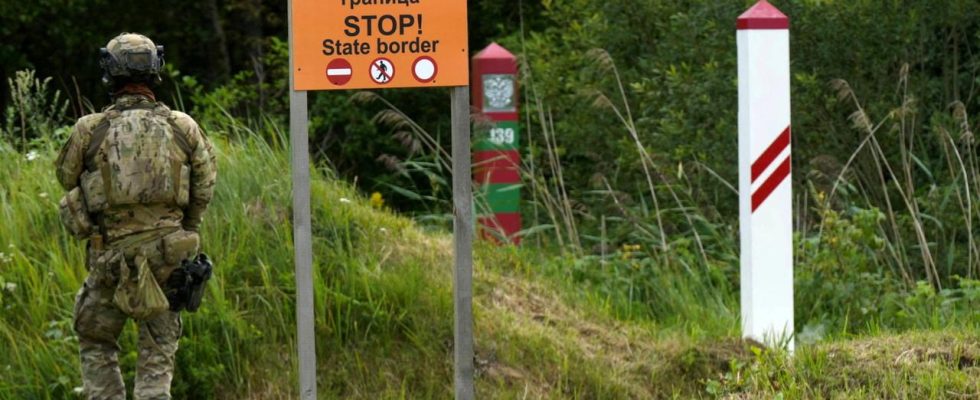There is great concern in Estonia, Latvia and Lithuania that Russia will also attack them. And so serious preparations are being made there for the defense of the Baltics.
It is considered NATO’s weakest point: the Suwalki Gap, a narrow strip of land measuring around 65 kilometers between Poland and Lithuania. At one end of this strip lies Belarus and at the other the Russian exclave of Kaliningrad.
A Russian attack could cut off the entire Baltics. Since the start of the war in Ukraine, fear has been growing in the Baltic states that they could be next.
“It’s clear to everyone that we’re next”
“The Russians are ‘all in’. They will destroy Ukraine. And who knows what else?” said Lithuanian Foreign Minister Gabrielius Landsbergis in Brussels at the beginning of the week. “If Ukraine falls, it will be clear to everyone that we are next. Putin doesn’t stop. He can’t stop.”
In Lithuania they are therefore preparing for war. More than 3,300 shelters have been created in the past year and a half, in subways or schools, for example.
But it’s not enough: “We’re still going ahead, the list isn’t finished,” said Interior Minister Agne Bilotaite. “The emergency shelters we have now can provide temporary shelter to more than 900,000 people, which is almost a third of our country’s population.”
Defense training also for children
The fire department and rescue services are responsible. You also have to ensure that the people in Lithuania know where they can flee to in an emergency. The Baltic people should not only practice seeking protection, but also defending themselves.
The youngsters learn that. Survival courses prepare students on how to provide first aid and operate a weapon. The Baltic countries want to build defense facilities together on their borders with Russia and Belarus. From 2025, a system of bunkers and defense lines will be created.
Ukraine aid as national defense
Supporting Ukraine is also an important component of the Balts’ own defense. Latvia has so far spent a total of one percent of its gross domestic product on this, said Latvian Prime Minister Evika Siliņa on Thursday.
“Our message to the attacker is clear: Don’t even come here because we will defend our country together with our NATO allies from the first inch,” said the politician in the Latvian parliament.
The Baltics also want to better arm themselves against hybrid attacks in the future. It only recently came out: The Interior Minister and a journalist’s car windows were allegedly smashed and monuments were damaged in Estonia last year on Russian orders.
“Good at creating chaos and trenches”
“These things are happening right in the middle of our societies,” said Estonian Prime Minister Kaja Kallas recently in the Tagesthemen. “We make them public so that other countries can also recognize these patterns. Russia is very good at creating chaos and divisions within our societies.”
The Estonian stands for a tough stance against Russia and is considered one of Ukraine’s most committed supporters. Her name recently appeared on a wanted list in Moscow. But she won’t let Putin intimidate her, Kallas emphasized in the interview daily topics: “He wants us to be afraid. But that would mean giving him what he wants. That’s why we shouldn’t be afraid.”
“Nobody knows when they’re coming”
For people living along the Suwalki Corridor, this is easier said than done. The Lithuanian Maryte lives in the sleepy town of Liubavas. “Yes, we are afraid. Terribly afraid,” she told Lithuanian radio last summer.
“It’s all happening right next door, and no one knows what night they’re going to come here and what’s going to happen.” It was terrible, says Maryte.
They and many others will have to continue to live with this fear. After two years of war, there is no end in sight.
Julia Waschenbach, ARD Stockholm, tagesschau, February 23, 2024 5:54 p.m

